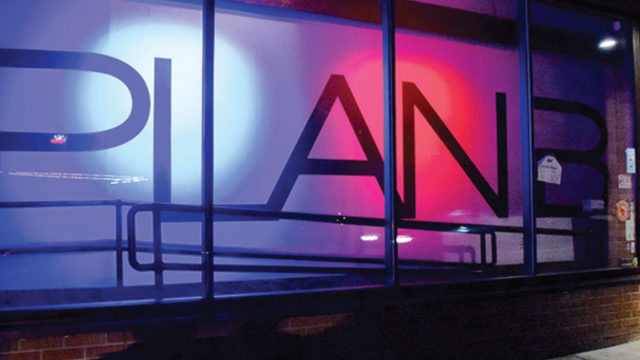The lease for a new nightclub at 924 Williamson Street, the former location of Prism and Plan B, contains a provision barring the owner from hosting “hip-hop or urban music” at the venue without prior written approval of the building owner.
The owner of the building is Chvala Ventures, owned by former Democratic State Senator Chuck Chvala. Attempts to reach Chvala were unsuccessful.
The provision was briefly addressed at Wednesday’s Alcohol License and Review Committee meeting, where Canopy Nightclub owner Austin Carl was seeking a license to serve alcohol. Committee member Michael Donnelly asked Carl why that provision was included in the lease.
“It was a concern due to a couple of instances that had happened at hip-hop nights,” Carl said. “I think ‘urban’ is the word in question. That’s just tacked onto hip-hop. The landlord was worried that we would have some instances that would scare away some of the community members. Not scare away, necessarily, but make the community uncomfortable. This is something that is open to negotiation on our second lease. The landlord just wanted to provide us with as little trip-ups as possible in light of, if someone got hurt or if something awful happened, it wouldn’t completely tank the business.”
Carl said he felt Canopy could provide proper security for hip-hop shows.
“I think that given the opportunity, we could have provided a safe and healthy space for a hip-hop night. It all boils down to a cohesive security team and a good plan. I would definitely look at revisiting this in the future,” he said.
But experts say hip-hop shows are no more likely to result in violence than any other kind of show. The lease provision is the latest in what some see as a long-running systemic discrimination against hip-hop music, based on nothing but racism.
“We know that ‘hip-hop’ is often used as code for ‘Black,’ that when people have racist perceptions and they don’t want to come right out and say it, a way to code for that and get around it is to use ‘hip-hop’ as a term because hip hop crowds are associated with crowds of black and brown people,” said Dr. Karen Reece, executive director of the Madison-based Urban Community Arts Network.
Reece coordinated a study at the University of Wisconsin which found “absolutely no correlation between hip-hop and violence.”
The study, published by the peer-reviewed journal Black Studies, looked at police data over an extended period.
“We did a study that covered eight years of police calls for service to venues with entertainment and liquor licenses and looked at where police were showing and we coded by genre over this eight year period and we saw absolutely no difference (between genres),” she said.
Reece said attitudes about hip-hop music are so entrenched that often, people don’t believe the data. She said one Madison police captain rejected the data because “it wasn’t his personal experience.”
The ALRC ultimately did not approve a liquor license for Canopy, opting instead to take the application up again at its Feb. 11 meeting. Members cited a shifting business plan — Carl initially said he wanted to be open as a coffee shop during the day and have an open patio for dining, both of which have since been abandoned — and neighborhood concerns that a nightclub of any kind is not appropriate at that location. Several committee members expressed skepticism that Canopy would ever be granted a license, saying Carl was not prepared with a sustainable business plan and the location is not suitable to a nightclub.
Canopy was set to host its grand opening this weekend, and a Facebook event still advertises rail drink specials.


































